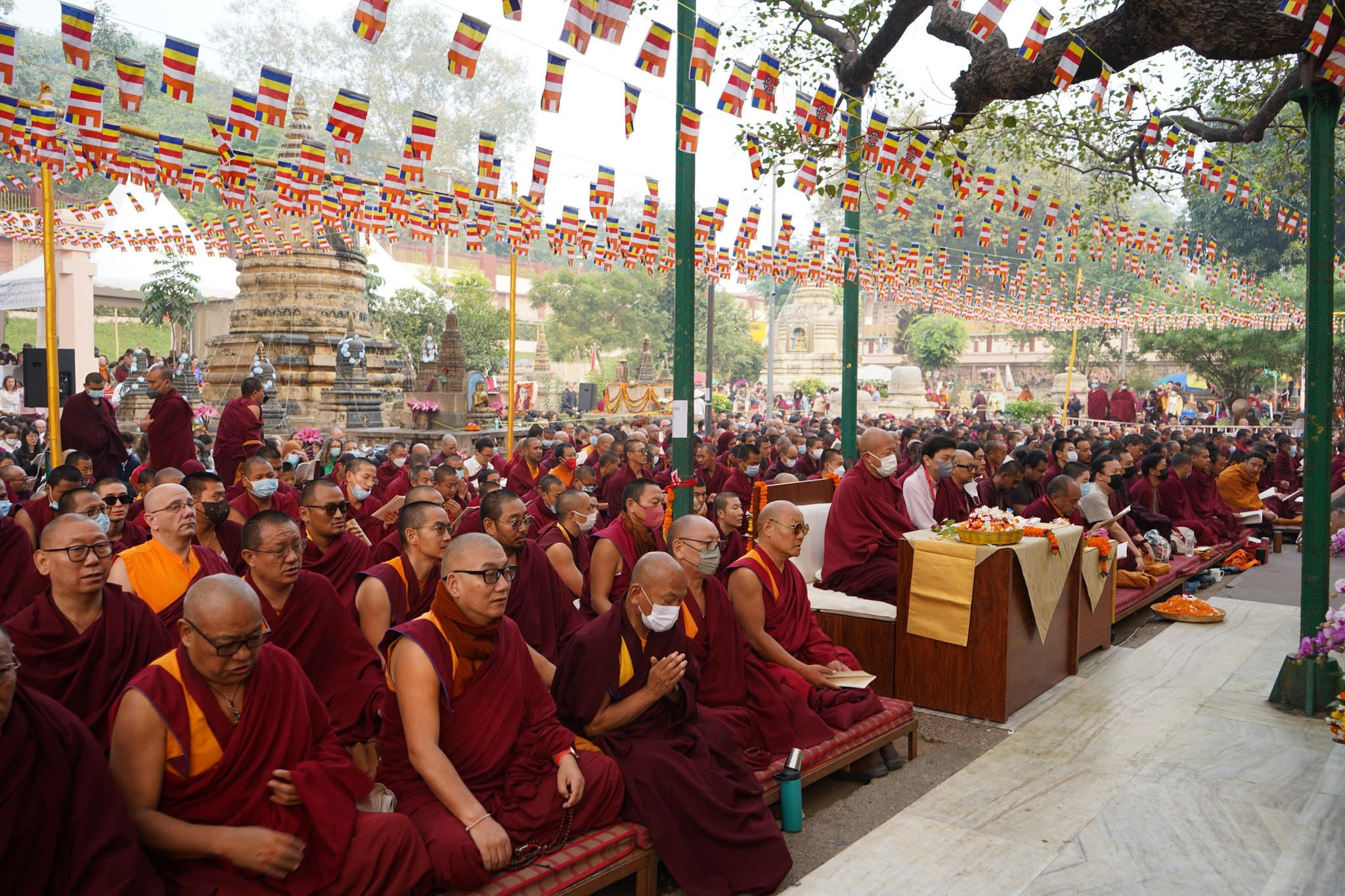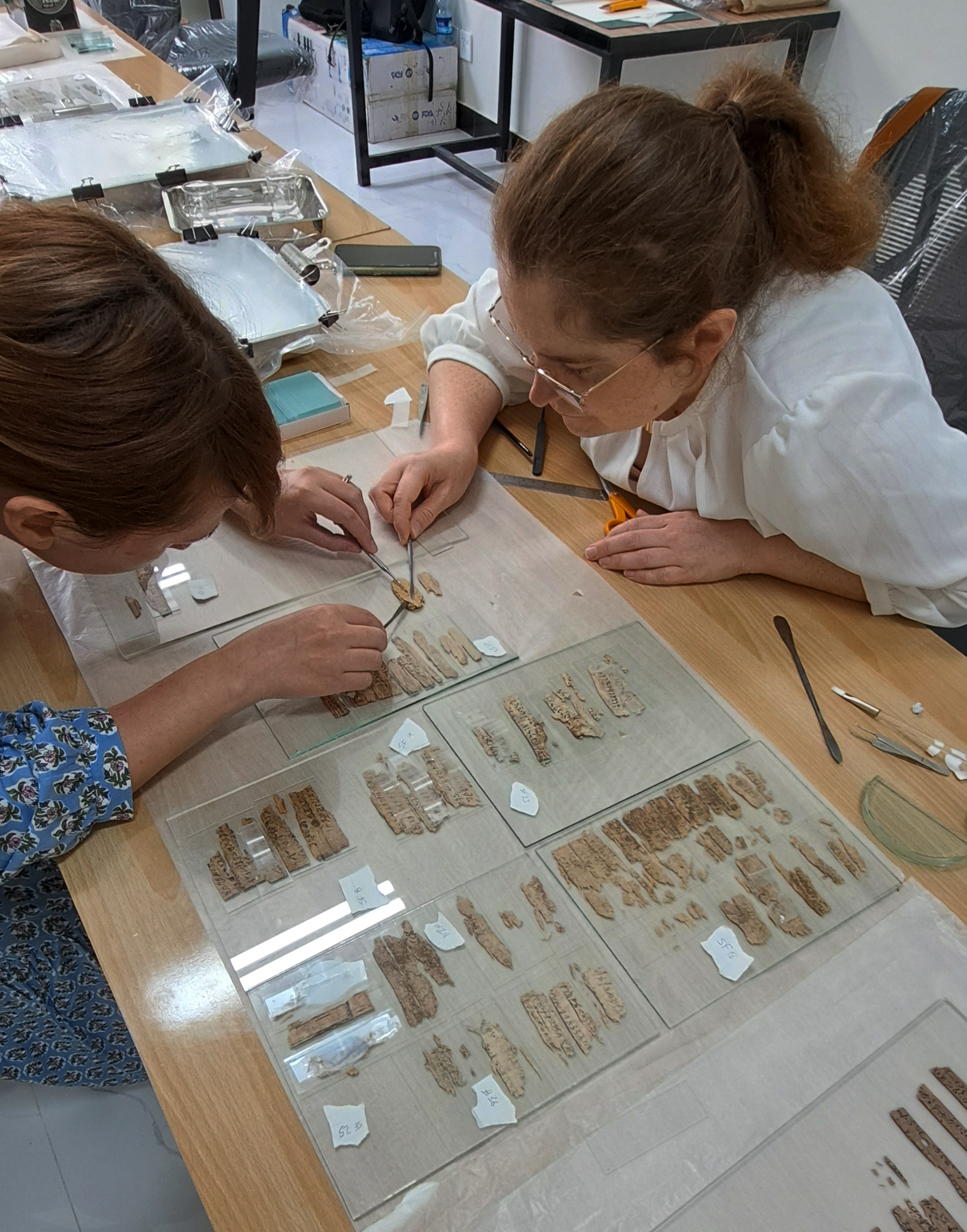
Perfect Partners
Executive Director Cangioli Che describes her trip to the original Dzongsar Library in Tibet.
Executive Director Cangioli Che describes her trip to the original Dzongsar Library in Tibet.
I visited Tibet and Dzongsar Monastery for the first time in 2001. Dzongsar Monastery is the seat of my teacher, Dzongsar Khyentse Rinpoche, and is also the location of Dzongsar Khamje Shedra, which was founded by Jamyang Khyentse Wangpo the Great in the 1870s. Among the many sites that we visited, one of the most memorable was the remnant of the once-famous Rimé–or pansectarian–library at Dzongsar Monastery, one of the many major libraries that were destroyed during the political turmoil of the 1960s. This library was famous for its comprehensive collection of rare Buddhist texts, embracing all traditions, compiled under the supervision of its founders, the great Buddhist master Jamyang Khyentse Wangpo (1820-1892) and his successor, Jamyang Khyentse Chökyi Lodrö (1894-1959). We had a chance to speak with witnesses of the devastation, who described how the library burned for seven days. Very few books survived the rampage.
Around the time that we undertook this journey, Khyentse Foundation was conceived as a collaborative effort of Khyentse Rinpoche’s students and friends all over the world to support the study and practice of Buddhism. The Foundation was formally incorporated in late 2001. As one of the first top priority projects, Rinpoche wanted Khyentse Foundation to undertake the restoration of the library at Dzongsar Monastery.
It’s relatively easy to rebuild a physical library building, but how do you replenish the library? Where and how do you find the lost books again? Fortunately, we didn’t have to look very far to find out what Gene Smith had already accomplished. For more than 30 years he has been collecting, preserving, cataloging, and more recently digitizing much of the surviving Tibetan canon.
Rinpoche visited Gene at his new Tibetan Buddhist Resource Center (TBRC) office in New York during that period and saw what Gene was accomplishing. Rinpoche’s reaction was immediate and his instructions to us were very clear: “No need to do anything else (concerning the restoration of the library at Dzongsar), just support Gene’s work, and help Gene complete what he is doing as much as we can.” And Khyentse Foundation has been doing that ever since.
The primary role that Khyentse Foundation has taken in Gene’s work is as a financial donor. We raise and disburse funds so that Gene can complete the scanning, outlining, and formatting of his entire collection of over 12,000 volumes of Tibetan literature. About 5,000 volumes have already been scanned, but much work remains to be done to complete a fully functional, easily searchable, and user-friendly digital library that is free for all to use. All the planning, technology, know-how, and infrastructure are in place. With sufficient funding, this digital library can be completed in just 4 years. When Gene’s Digital Library is complete, the comprehensive Buddhist archives can be easily reproduced by print-on-demand facilities at Dzongsar and other institutes, restoring the library for the benefit of students and practitioners. However, the significance of Gene’s work is not only about preservation and archiving books in a museum-like library. Just like Rinpoche, Gene’s concern and effort are directed toward making these books easily and readily available, free of charge if possible, to everyone–Buddhist or non-Buddhist, scholar or student, monastic or layperson, researcher or translator–in fact, anyone who wants to use them. This is completely in synergy with Khyentse Foundation’s mission in supporting the preservation, translation, and distribution of Buddhist texts for the benefit of all beings. In addition, with his encyclopedic knowledge of Buddhist studies, Gene is a most valuable adviser to Khyentse Foundation. Gene was instrumental in the Foundation’s selection of UC Berkeley as the recipient of our Endowed Chair in Buddhist studies. He is also helping us tremendously in formulating the translators’ conference in 2009, and is involved in many other KF projects. In accordance with Gene’s statement that “The greatest Tibetan library in the world had its beginning in Dzongsar Institute,” the wheel will have turned full circle when Gene’s digital library provides the source material to restore the original library compiled by Jamyang Khyentse Wangpo the Great. Preservation of Buddhist texts is a priority of Khyentse Foundation’s work. In addition to supporting TBRC, the Foundation also supports the work of Professor Peter Skilling’s Fragile Palm Leaves Foundation in Thailand and the Jonang Foundation. We are still raising funds to complete Gene’s digital library.




